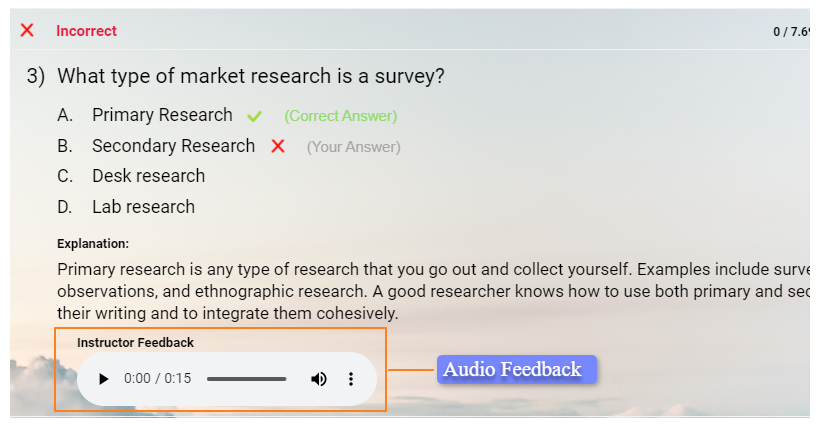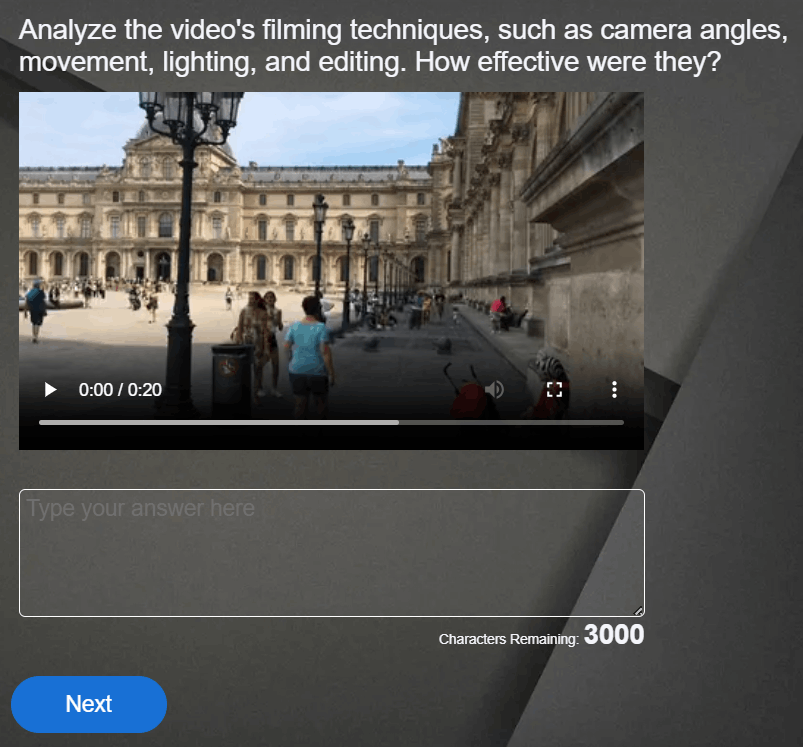Although resumes used to be the gold standard for hiring candidates, today’s competitive market needs a deeper lens to find the best talent. Enter candidate assessment tools. These innovative platforms go beyond resumes by offering a comprehensive picture of a candidate’s skills, personality, and cultural fit.
Being a part of the talent assessment and recruitment industry for over two decades now, I have seen these online test makers evolve. Curious how these tools can transform your hiring process? Let’s decode it in this detailed guide, which reviews candidate assessment tools, the different types available, the best ones on the market, their benefits, and more.
What Are Candidate Assessment Tools?
| “Hiring the wrong people is the fastest way to undermine a sustainable business.”
Kevin J. Donaldson Entrepreneur, Author, and Business Coach |
Job candidate assessment tools are software or methods that help employers evaluate job applicants’ skills, personality, and fit for a role. These tools include psychometric tests, which gauge work styles and team compatibility, skills assessments that measure job-specific abilities, and cognitive tests that evaluate problem-solving skills.
These assessment tools aim to provide data-driven insights beyond resumes and interviews, allowing employers to make more informed decisions. They also reduce bias, improve candidate experience, and predict job performance.
Studies show these tools can significantly improve hiring decisions.
For example, Unilever, a global consumer goods company, reduced its recruitment time by 75% after implementing online games and video interviews to assess candidates’ potential.
Here’s a sneak peek at some of the best candidate assessment tools on the market:
| Candidate Assessment Tool | Best for | Pricing |
| ProProfs Quiz Maker | Easily Creating Secure Assessments With AI or Templates | Forever FREE for short quizzes and all features. Paid plan starts at $9.99/month. |
| Codility | Software Developers | Starts at $500/month |
| HackerRank | Custom Coding Tests | Starts at $100/month |
| Adaface | Role-Based Assessments | Starts at $180/year |
| HR Avatar | Cognitive Assessments | Starts at $50 for 1 candidate credit |
| Pymetrics | Gamified Assessments | Custom pricing |
| ThriveMap | Real-Life Simulations | Starts at £15.00/year. |
| Toggl Hire | Template-Based Assessments | Free plan (basic features only and up to 5 candidates). Paid plans start at $20/month for up to 20 candidates. |
| Vervoe | Branded Assessments | Starts at $300 for up to 10 candidates |
| TestGorilla | Bias-Free, Pre-Employment Testing | Free plan (up to 5 free tests and 5 custom questions). Paid plans start at $75/month. |
List of the 10 Best Candidate Assessment Tools & Software
Here is a list of some of the best candidate assessment tools and software I have used. Check out the major features, pros, and cons of each to pick the best option.
1. ProProfs Quiz Maker – Best for Easily Creating Secure Assessments With AI or Templates
From my extensive experience using ProProfs Quiz Maker, I can confidently say it is one of the best free online candidate assessment tools. The platform’s AI quiz generator makes designing quizzes seamless, saving countless hours in question creation. Just add a few details and get quizzes ready in a few seconds.
I also love its library of 200+ professionally designed skill assessments and over a million readymade assessment questions to use in your candidate evaluations.
Plus, it offers 20+ question types, including multiple-choice, checkbox, multimedia questions, video response, and more. It also supports automated grading and reporting features so that you can generate instant results and compare candidates easily.
ProProfs Quiz Maker is also equipped with robust security and anti-cheating features, including password protection, proctoring, browser security, and more.
What you’ll like:
- Extensive white-labeling and branding features for customizing the look and feel of your assessment according to your requirements.
- Audio and video response questions to assess candidates’ personality and communication skills
- Real-time analytics provide immediate insights into candidate performance, helping recruiters make quick decisions.
- Supports assessments in English, Spanish, and 70+ other languages, allowing you to assess candidates globally.
- Cheating prevention features, such as automated proctoring, question/answer shuffling, tab switching prevention, password protection, IP security, and more
What you may not like:
- It doesn’t offer a dark mode, which some users might find helpful in low-light settings.
- There’s no downloadable or on-premise version available, which may not meet every organization’s preferences.
Pricing: Forever FREE for short quizzes and all features. Paid plan starts at $9.99/month for longer quizzes, advanced security, and an assessment library.
2. Codility – Best for Hiring Software Developers
Image Source: TechCrunch
Having used Codility extensively in the past, I find it indispensable for assessing software developers. Codility’s coding challenges and real-world problems are perfectly designed to test the practical skills of developers.
The platform also allows for custom test creation, which helps in tailoring assessments to specific job requirements. It offers automated grading and detailed performance reports that make it easier to identify top candidates.
Besides, its focus on real-world coding tasks ensures that you get a clear picture of a candidate’s coding abilities and problem-solving skills.
What you’ll like:
- Codility provides a realistic coding environment that simulates real-world scenarios, giving a true test of a candidate’s skills.
- The platform supports multiple programming languages, making it versatile for different technical requirements.
- Pre-built and customizable coding tests allow recruiters to tailor assessments to specific job roles.
- Detailed performance analytics offer deep insights into a candidate’s abilities and areas of improvement.
- Plagiarism detection ensures test integrity by identifying copied code.
What you may not like:
- Limited non-technical assessment options restrict its use to primarily technical roles.
- There are occasional discrepancies in automated grading, which may require manual review.
Pricing: Starts at $500/month
3. HackerRank – Best for Custom Coding Tests
Image Source: Hackerrank
HackerRank has been my go-to tool for creating custom coding tests for years. Its flexibility in designing tailored coding challenges is unmatched, allowing you to assess a candidate’s skills in a highly specific manner.
The platform supports various programming languages and frameworks, making it suitable for diverse tech roles. Its real-time coding environment and automated scoring provide immediate feedback, which is crucial in a fast-paced recruitment process.
The detailed analytics and candidate comparison features have significantly streamlined our hiring process, ensuring we select the best talent.
What you’ll like:
- HackerRank has an extensive library of coding challenges, providing various test options for different roles.
- Real-time code collaboration features allow candidates to work together, simulating real-world work environments.
- Comprehensive analytics and reporting tools provide detailed insights into candidate performance.
- Benchmarking tools allow for effective comparison of candidates’ skills and abilities.
- The community-driven platform has continually updated content that reflects the latest industry trends.
What you may not like:
- High costs for enterprise-level features may not be feasible for smaller companies.
- Requires a stable internet connection for optimal performance, which can be a limitation in some regions.
Pricing: Starts at $100/month
4. Adaface – Best for Role-Based Assessments
Image Source: Adaface
In my previous experience with Adaface, I found it a premier tool for role-based assessments. Its conversational AI approach makes the assessment process more engaging and reflective of real-world job scenarios.
Adaface’s library of role-specific tests ensures that each assessment is highly relevant to the position being filled. The platform’s detailed reporting and analytics provide valuable insights into candidate strengths and areas for improvement.
This tailored approach helps identify the most suitable candidates and ensures a better fit for the role and the organization.
What you’ll like:
- The conversational format of assessments enhances candidate engagement and reduces test anxiety.
- AI-driven assessments help reduce bias, providing fairer evaluation results.
- Detailed candidate performance reports offer valuable insights into strengths and areas for improvement.
- The platform supports multiple assessment types, including coding, aptitude, and personality tests.
- A customizable question bank allows recruiters to create highly specific assessments.
What you may not like:
- Limited support for niche roles may restrict its usage in specialized industries.
- The initial setup process can be time-consuming and requires significant input.
Pricing: Starts at $180/year
5. HR Avatar – Best for Cognitive Assessments
Image Source: HR Avatar
HR Avatar has been a critical tool in my toolkit, especially for cognitive assessments. The platform’s comprehensive tests measure a wide range of cognitive abilities, including problem-solving, critical thinking, and attention to detail.
What I love about HR Avatar is its use of realistic job simulations, which give a more accurate representation of a candidate’s potential job performance. The detailed reports and benchmark comparisons help in making informed hiring decisions.
The tool’s cognitive assessments are invaluable in identifying high-potential candidates who can excel in complex roles.
What you’ll like:
- Engaging simulations and multimedia questions make the assessments more interactive and enjoyable.
- Detailed candidate reports provide in-depth insights into cognitive abilities and personality traits.
- Mobile-friendly assessments allow candidates to complete tests on the go.
- The platform boasts an extensive test library, offering a variety of assessment options.
- Easy integration with HR systems helps streamline the recruitment process.
What you may not like:
- Limited customization options may not suffice for all recruitment needs.
- Some tests may be too challenging for entry-level roles, leading to potential candidate drop-off.
Pricing: Starts at $50 for 1 candidate credit
6. Pymetrics – Best for Gamified Assessments
Image Source: Pymetrics
I use Pymetrics quite a bit and can say that it has revolutionized our assessment process with its gamified approach. By using neuroscience-based games, Pymetrics evaluates candidates’ cognitive and emotional attributes in a fun and engaging way.
From my experience, this method not only attracts a wider pool of applicants but also provides deep insights into their inherent strengths and weaknesses.
The data-driven results help in making unbiased hiring decisions, aligning candidates with roles where they are most likely to succeed.
What you’ll like:
- Supports neuroscience-based evaluations, which provide a scientific approach to assessing cognitive and emotional traits.
- AI-driven insights help reduce bias, ensuring fairer hiring decisions.
- Real-time feedback is provided to candidates, enhancing their experience.
- Customizable games can be tailored to specific roles, improving relevance.
- Detailed analytical reports offer deep insights into candidate suitability.
What you may not like:
- The platform is limited to cognitive and emotional assessments, restricting its use for technical skills evaluation.
- Higher costs for enterprise solutions can be a barrier for smaller companies.
Pricing: Custom pricing
7. ThriveMap – Best for Real-Life Simulations
Image Source: Capterra
ThriveMap is another good candidate assessment tool I have used in the past, especially because of its focus on real-life simulations. The platform creates custom assessments that mirror the actual job environment and tasks.
This approach provides a clear picture of how candidates will perform in the role. From my experience, ThriveMap’s simulations are incredibly accurate in predicting job performance, making it easier to identify the right fit.
The detailed feedback and analytics allow for a thorough evaluation of each candidate’s capabilities and potential.
What you’ll like:
- Enhanced candidate engagement is achieved through interactive simulations.
- Detailed performance analytics offer valuable insights into candidate capabilities.
- Customizable simulations can be tailored to specific roles, ensuring relevance.
- Mobile-friendly assessments allow candidates to complete tests on the go.
- Integration with recruitment systems helps streamline the hiring process.
What you may not like:
- The time-consuming setup process requires significant input from subject matter experts.
- Limited to specific job types, restricting its use for some roles.
Pricing: Starts at £15.00/year
8. Toggl Hire – Best for Template-Based Assessments
Image Source: Toggl
In my use of Toggl Hire, I found that its strength lies in its extensive range of pre-built templates. It supports a whopping 150+ customizable assessment templates that cover various job roles and skill sets, making it quick and easy to set up assessments.
The platform’s user-friendly interface and automated scoring streamline the hiring process, saving valuable time. Toggl Hire’s ability to customize templates ensures that assessments are relevant and aligned with specific job requirements.
The comprehensive candidate reports provide clear insights, aiding in making informed hiring decisions efficiently.
What you’ll like:
- The user-friendly interface makes it accessible even for those with limited technical skills.
- Real-time candidate performance tracking provides immediate insights into test results.
- Integration with major HR tools streamlines the recruitment process.
- The platform supports various question types, enhancing test versatility.
- The tool’s simplicity reduces the time and effort needed to create assessments.
What you may not like:
- Limited advanced customization options may not suffice for all recruitment needs.
- Higher costs for premium templates can be a barrier for smaller businesses.
Pricing: Free plan (basic features only and up to 5 candidates). Paid plans start at $20/month for up to 20 candidates.
9. Vervoe – Best for Branded Assessments
Image Source: Vervoe
Vervoe stands out in my experience for its capability to create branded assessments. The platform allows you to design assessments that reflect your company’s branding and culture, providing a unique candidate experience.
One of the things that I really like is its AI-driven evaluation and skill-based testing ensure that assessments are both accurate and engaging. The platform’s detailed analytics and customizable reports help in identifying top talent while maintaining a consistent brand image throughout the hiring process.
Vervoe’s focus on branding makes it a valuable tool for organizations looking to enhance their recruitment strategy.
What you’ll like:
- Supports AI-driven evaluation that ensures objective and accurate results.
- Provides detailed candidate reports that offer valuable insights into skills and suitability.
- The platform supports various types of assessments, catering to different job roles.
- Its seamless integration with major ATS helps streamline the recruitment process.
- Mobile-friendly assessments that allow candidates to complete tests on the go.
What you may not like:
- Limited non-technical assessment options restrict its use for certain roles.
- Requires consistent internet connectivity, limiting its use in some areas.
Pricing: Starts at $300 for up to 10 candidates
10. TestGorilla – Best for Bias-Free, Pre-Employment Testing
Image Source: TestGorilla
TestGorilla is one of the best candidate assessment tools I have used, and I love its commitment to bias-free pre-employment testing. The platform offers a wide range of scientifically validated tests that ensure objective and fair assessments.
The tool’s focus on eliminating bias through anonymous grading and diverse test options helps in making equitable hiring decisions. From my experience, the detailed candidate profiles and comprehensive test results provide a clear and unbiased evaluation of each candidate’s abilities.
TestGorilla’s approach ensures a fair and transparent hiring process, promoting diversity and inclusion.
What you’ll like:
- Offers a library of over 400+ scientifically validated tests covering a wide range of skills and competencies, from technical abilities like coding to soft skills like critical thinking
- Comprehensive analytics and reporting tools provide deep insights into candidate performance.
- Supports remote assessments, making it ideal for global talent sourcing and remote work environments.
- Integrates with major Applicant Tracking Systems (ATS) like Greenhouse and SmartRecruiters, as well as other HR tools through Zapier.
- Emphasizes data security and compliance, ensuring that sensitive candidate and employee data is protected according to industry standards.
What you may not like:
- Higher costs for advanced features can be a barrier for some organizations.
- Limited real-life simulation options restrict its use for practical skills assessment.
- Some tests may be too general for specific roles, requiring additional customization.
Pricing: Free plan (up to 5 free tests and 5 custom questions). Paid plans start at $75/month.
Evaluation Criteria for Candidate Assessment Tools
The evaluation of candidate assessment tools in this article follows a thorough and objective approach, ensuring a comprehensive and balanced review. Here are the key factors considered:
- User Reviews and Ratings: We look at feedback from actual users, including ratings from trusted sources. This firsthand insight reveals overall satisfaction levels and helps identify any common issues or praises associated with the tool.
- Core Features and Functionality: The assessment tools are evaluated based on their essential features—what they offer in terms of skill assessments, personality tests, and integration capabilities. Understanding how these functionalities contribute to the hiring process is crucial for determining their effectiveness.
- Ease of Use: We assess how user-friendly each tool is, examining its design, interface, and navigation. A straightforward experience is vital, as it allows HR teams and candidates alike to engage with the tool without frustration.
- Customer Support: The quality of customer support is a critical factor. We evaluate how efficiently the support team addresses setup issues, ongoing concerns, and operational queries. Reliable support can significantly impact a user’s experience.
- Cost-Effectiveness: We analyze the pricing structures relative to the features offered. This helps determine whether the tool provides good value for money, taking into account both immediate costs and long-term benefits.
- Insights from Personal Experience and Experts: This evaluation incorporates perspectives from the author’s personal experience with the tools, as well as insights from industry experts. These observations enrich the review, offering practical viewpoints on each tool’s strengths and weaknesses.
What Are the Types of Candidate Assessment Tools?
Candidate assessment tools can be categorized into the following types:
1. Skill Tests
These are designed to assess candidates’ proficiency in specific areas relevant to the job they’re applying for. This could include tests for technical skills, typing speed, software knowledge, or industry-specific abilities.
2. Cognitive Ability Tests
These tests measure candidates’ general mental capacity and ability to process and apply information. They often assess areas like problem-solving, critical thinking, numeracy, and verbal reasoning.
3. Personality Tests
These tools help determine if a candidate’s personality traits align with the job requirements and company culture. Common examples include the Myers-Briggs Type Indicator (MBTI) and the Big Five personality traits model.
Watch: How to Create a Personality Quiz
4. Situational Judgment Tests (SJTs)
SJTs present candidates with hypothetical, job-related situations and ask them to choose the best response from a set of options. This assesses their judgment, problem-solving skills, and suitability for the role.
5. Structured Interviews
By using a standardized set of questions, these interviews ensure that each candidate is assessed in a consistent manner. They can include behavioral questions that ask candidates to describe past experiences related to the job.
6. Assessment Centers
Typically used for higher-level positions, assessment centers evaluate candidates through a series of exercises that simulate job tasks. These might include group discussions, simulations, role-playing activities, and presentations.
7. Job Simulations
These involve candidates performing tasks or projects that are similar or identical to those they would encounter in the job. This can include writing code, designing a marketing plan, or handling customer service scenarios.
8. Video Interviews
Often used as a preliminary assessment tool, video interviews can be either live or pre-recorded. They help assess a candidate’s communication skills, professionalism, and sometimes their responses to on-the-spot questions.
9. Background Checks
These include checking a candidate’s employment history, criminal record, educational background, and reference checks to ensure the information provided is accurate and to identify any potential red flags.
10. AI-Powered Tools
The AI-powered assessment tools use machine learning algorithms to assess resumes, analyze video interviews, and even predict candidate success based on data collected through various assessment methods.
You can use one or a combination of these tools depending on the job’s requirements and the industry. Each type of tool can provide valuable insights into a candidate’s abilities and potential for success in a role.
Watch: 15+ Question Types for Online Learning & Assessment
FREE. All Features. FOREVER!
Try our Forever FREE account with all premium features!
Why Use Candidate Assessment Tools: Top Benefits
| “I’m convinced that nothing we do is more important than hiring and developing people. At the end of the day, you bet on people, not on strategies.”Lawrence BossidyAuthor & Retired Businessman |
Candidate assessment tools are designed to streamline the hiring process and improve the quality of hires. Here are some of the primary benefits of using these tools:
- Improved Efficiency: Assessment tools automate parts of the selection process, such as initial screenings and skill assessments. This reduces HR staff’s time on administrative tasks and speeds up the hiring process.
- Better Quality of Hire: These tools help in objectively evaluating candidates based on their skills, knowledge, and potential fit with the company culture. This leads to better hiring decisions and can reduce turnover.
- Consistency: Automated assessments ensure that all candidates are evaluated using the same criteria, which helps in maintaining fairness and consistency in the hiring process.
- Scalability: Assessment tools can handle large volumes of applicants efficiently, which is particularly beneficial for companies with high recruitment needs or those experiencing rapid growth.
- Enhanced Candidate Experience: Many tools provide immediate feedback to candidates about their assessments, which can enhance their experience and perception of the company.
- Reduced Bias: By focusing on skills and competencies rather than resumes, these tools can help reduce unconscious biases that might affect the hiring process.
- Data-Driven Insights: Advanced analytics provided by these tools can offer insights into the effectiveness of the hiring process and pinpoint areas for improvement.
- Regulatory Compliance: Automated tools can be designed to comply with employment laws and regulations, helping organizations avoid legal issues related to hiring practices.
Using candidate assessment tools can significantly enhance the efficiency and effectiveness of the hiring process, ultimately leading to better hires and a stronger workforce.
How to Choose an Effective Assessment Tool for Candidates
Choosing an effective candidate assessment tool is crucial for optimizing your recruitment process and ensuring you select the most suitable candidates for your organization.
Here’s a detailed guide to how to select the right tool.
- Identify Specific Needs for Assessment
Determine the specific functionalities you require from an assessment tool. Whether it’s skills testing, personality evaluations, cognitive abilities, or situational judgment tests, clearly defining these needs will help you select the most appropriate tool.
Pro Tip: Survey your hiring managers to identify the most valued skills and traits for different roles before selecting an assessment tool.
- Ensure Tool Validity and Reliability
The tool should have robust scientific backing, demonstrating its ability to consistently and accurately measure the intended attributes across diverse candidate groups.
Pro Tip: Look for assessment tools that provide detailed documentation on their validation studies and reliability scores.
- Assess Relevance to the Job Role
Make sure the assessment tool measures competencies and skills that are crucial for the job. An irrelevant assessment can lead to poor hiring decisions and disengage candidates.
Pro Tip: Align the assessment criteria with job descriptions to ensure relevance and effectiveness.
- Consider the Overall Candidate Experience
The tool should be user-friendly and accessible on various devices. A cumbersome or overly long assessment process can turn off potential candidates.
Pro Tip: Regularly update and streamline the assessment process based on candidate feedback to enhance the application experience.
- Comply With Laws and Ensure Fairness
It’s critical that the tool complies with all local employment laws and promotes a fair assessment process by minimizing biases.
Pro Tip: Regularly review and update your assessment tools to ensure they meet current legal standards and reflect best practices in fairness and equity.
Read More: How to Conduct an Employee Compliance Assessment
- Check Integration With Existing Systems
Integration capabilities with your existing HR software are essential for maintaining an efficient recruitment workflow and managing data effectively.
Pro Tip: Use APIs or other integration tools provided by the vendor to ensure seamless data flow between systems.
- Look for Useful Analytical Insights
Choose tools that provide meaningful analytics, which can offer deeper insights into the capabilities and potential of candidates, aiding in making more informed hiring decisions.
Pro Tip: Leverage the data from assessments to not only make hiring decisions but also to inform training and development programs.
- Evaluate the Cost-Effectiveness of the Tool
The tool should offer good value for money, providing all the necessary features without being prohibitively expensive.
Pro Tip: Consider the long-term benefits and potential ROI of the assessment tool beyond its upfront cost.
- Test Through Trials and Gather Feedback
Use any available trial periods to evaluate the tool’s effectiveness firsthand. Also, seek out feedback from other users to get a broader perspective on its utility and performance.
Pro Tip: Conduct a pilot test with a small group of candidates and hiring managers to evaluate the tool’s impact before a full rollout.
- Ensure Adequate Support and Training
To ensure smooth adoption and effective use, adequate vendor support and comprehensive training materials are crucial, especially for complex tools.
Pro Tip: Schedule regular training sessions and refresher courses for your HR team to keep them updated on using the tool effectively.
By carefully considering these factors and utilizing the provided tips, you can select a candidate assessment tool that meets your organizational needs and significantly improves the efficiency and effectiveness of your hiring process.
How to Incorporate Candidate Assessment Tools into the Hiring Process
Ready to integrate candidate assessment tools? Here’s a straightforward approach to making it happen:
- Define Your Goals: Start by identifying the specific skills and traits needed for the roles you’re hiring for. This clarity will guide your selection of the right tools.
- Select the Right Tools: Research various assessment options to find those that best fit your needs. Consider usability, features, and how well they integrate with your existing HR systems.
- Pilot Testing: Conduct a trial with a small group of candidates. This helps you evaluate the effectiveness of the tools and gather feedback to make necessary adjustments.
- Train Your Team: Ensure your HR team is well-versed in using the tools. Providing adequate training will empower them to leverage the tools effectively, enhancing the overall hiring process.
- Communicate with Candidates: Be transparent about the assessment process. Let candidates know what to expect and why these evaluations are beneficial. Clear communication can ease any anxieties they might have.
- Analyze Results: After assessments, review the data and insights gathered. This will help you make more informed decisions and improve your hiring strategy over time.
By following these steps, you’ll effectively incorporate assessment tools into your hiring process, paving the way for better recruitment outcomes and a more dynamic candidate experience.
Streamline Candidate Assessments With Smart Tools & Software
Candidate assessment tools have evolved into essential assets in modern recruitment, playing a huge role in streamlining processes and guaranteeing optimal hires. Beyond simplifying the hiring journey, they offer invaluable insights into candidate suitability and potential, elevating the quality of selections. From evaluating skills to assessing cultural fit, these tools serve as powerful aids in decision-making processes.
Among all the tools I have used, I find ProProfs Quiz really good with its intuitive interface, extensive customization capabilities, and robust analytics. It has an intelligent AI quiz tool that generates assessments in seconds, and you can also use the customizable assessment templates to create custom tests according to your requirements.


 We'd love your feedback!
We'd love your feedback! Thanks for your feedback!
Thanks for your feedback!








